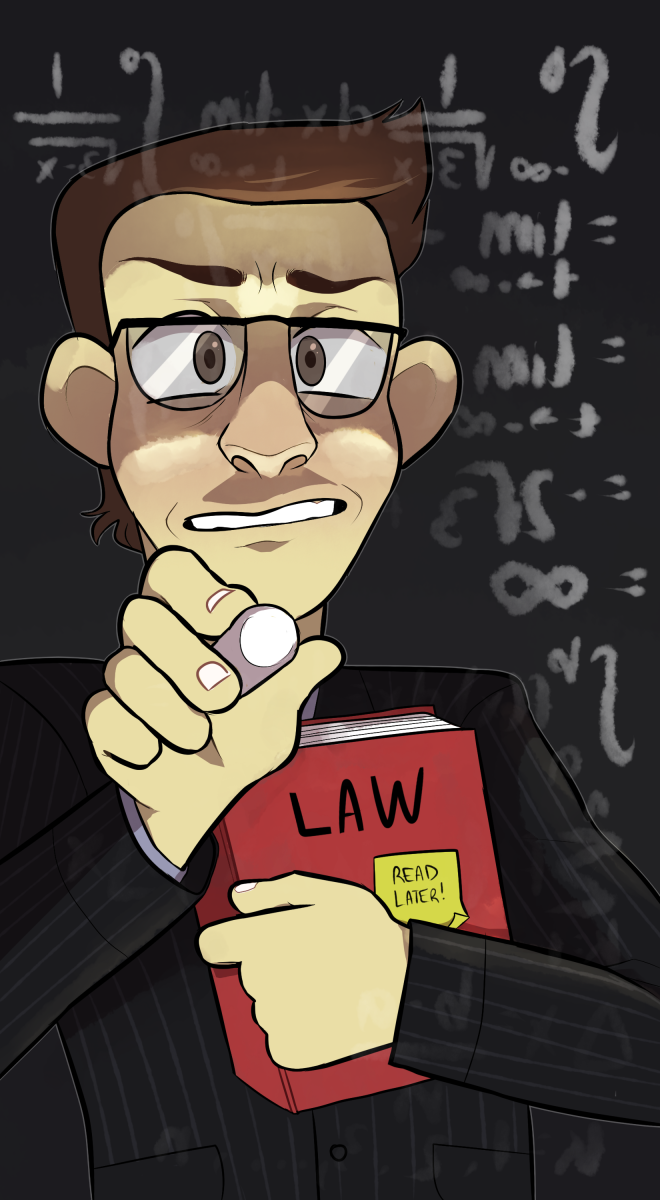I have struggled multiple times in the past to learn material for an exam only to realize that all the class was teaching me was how to take a test. Instead of doing something that would strengthen me for my future field of study — business administration and pre-law — I would sit and try to integrate an equation in applied calculus, constantly wondering how learning the subject would be of any help to me in the future.
A few weeks ago, one of my professors asked us to read an article called “From Knowing to Doing: Rethinking the Goals of Public Education,” which I found intriguing. The article reconsidered the goals of general public education, from focusing on what we should know to focusing on what we can do while taking one’s major into consideration.
The article states that the current goal of public education is to shape students who “know” things, which is measured by standardized tests and exams. The article claims the goal should be shaping students who can “do” things, like successfully completing projects and accomplishing things of meaning to the individual.
This is why I applaud UTD JSOM for making internships a requirement for graduation — it essentially pushes students to get involved and accomplish something pertaining to their majors. Although I am still looking for my first internship, I do know that getting involved with campus organizations and extracurricular activities has improved my communication skills, which is essential for my career goals.
According to a survey conducted by The Chronicle of Higher Education and American Public Media’s Marketplace, employers care more about internships and extracurricular activities than GPA and relevant coursework. Grades are also extremely important, but if that is the only thing on your resume that stands out as extraordinary, then all you have proven is that you know how to study.
However, having a high GPA in addition to extracurricular experience gives the impression that you know how to “do” things as well as “know” things.
“From Knowing to Doing” argues vocational education, which focuses on hands-on activities that closely resemble the activities students will partake in after graduation, is one of the most effective forms of education. However, according to the article, this form of education is rarely used in the public schooling system, because the system has a different definition of education.
According to neaToday.org, mainstream education’s focus on memorization and standardized testing has caused students to lose the knowledge they gain in school, and does not promote critical thinking and communication.
When students only focus on attaining a high GPA without additional experience, they may lack strong communication skills — which, according to mba.com, is essential to employers. You can read a textbook and learn about a subject for hours in the library, but without application, the knowledge becomes useless.
Externships and internships encourage students to “do,” and UTD offers plenty of opportunities for them. The business classes also encourage “doing” through group projects and presentations. Although internships are not a requirement for non-business majors at UTD, it is still highly encouraged to utilize UTD’s resources, like the Career Center, and pursue one.
So, it is essential to constantly get involved, to apply yourself in the real world and to gain experience to prove that you not only “know”, but can accomplish. Like Robyn Sue Fisher, the founder of Smitten Ice Cream, said, “While you can spend your years of your life preparing and making plans, nothing can compare to lessons learned while actually doing.”






